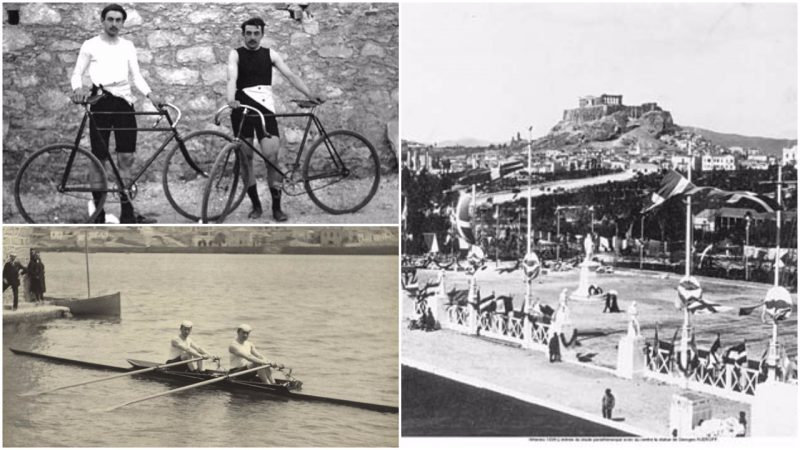The first Olympic Games held in modern history took place in Athens, Greece, from April 6-15, 1896. The games were officially known as the Games of the I Olympiad and were organized by the International Olympic Committee (IOC), created by French educator and historian Pierre de Coubertin.
It was on June 23, 1894, when Coubertin organized a congress in Paris and initiated the IOC. At the congress, Athens was selected to host the very first games, as Greece was the birthplace of the Ancient Olympic Games.
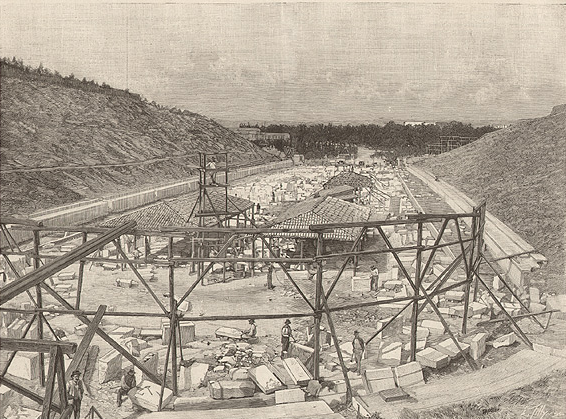
One of the main venues to host a number of sports events in the athletic and wrestling disciplines was the Panathenaic Stadium. Cycling was done at the Neo Phaliron Velodrome, and fencing competitions took place at the Zappeion, in the National Garden of Athens.
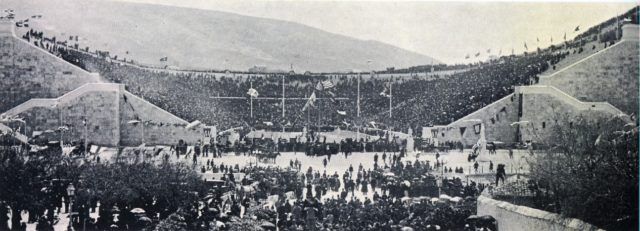
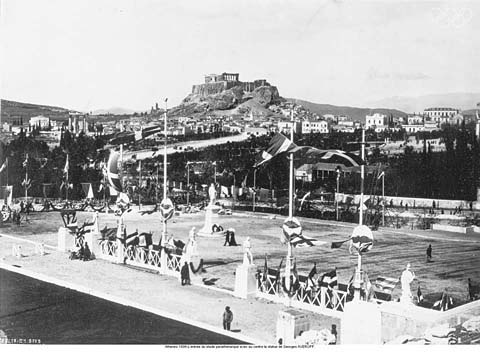
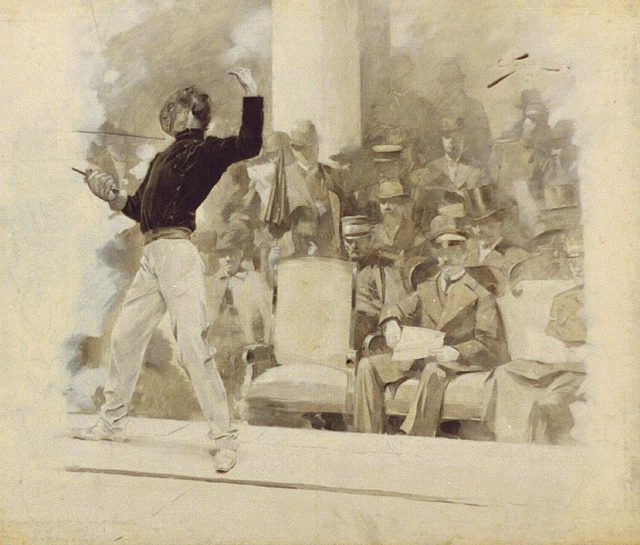
The opening ceremony of the games took place at the Panathenaic Stadium on April 6, or March 25, according to the Julian calendar which at that time was used in Greece. It was Easter Monday for both the Western and Eastern Christian Churches, and the date marked the very first time when athletes were historically aligned on the infield according to nations; to date, the tradition is still a vivid part of each Olympics opening. An estimated number of 80,000 spectators attended the opening ceremony, including King George I of Greece and his family.
Crown Prince Constantine, the president of the organizing committee, delivered an opening speech, and his father officially opened the Games with the following words: “I declare the opening of the first international Olympic Games in Athens. Long live the Nation. Long live the Greek people.” The ceremony continued with a choir and bands who performed the Olympic Hymn, composed by Spyridon Samaras and with words by poet Kostis Palamas. After the 1896 games, the Olympic Hymn wouldn’t be performed for another 64 years. The tradition would resume at the 1960 Winter Games in Squaw Valley, California, USA.
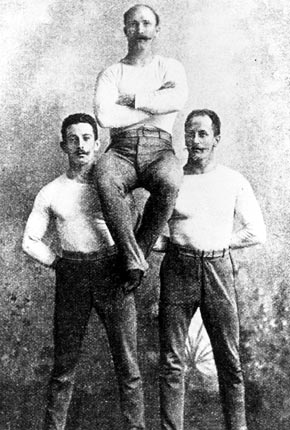
Fourteen nations participated in the competitions, out of which ten earned medals. The United States scored as a leader, having won most of the first place positions, 11 in total; the host country had won the most medals overall, 46 in total. Spyridon Lous was the pride of Greece as he brought his country victory in the marathon athletic discipline, for which he was additionally given a cup from Michel Bréal, a friend of Coubertin. The German wrestler and gymnast, Carl Schuhmann was the most successful competitor overall, having won four medals.
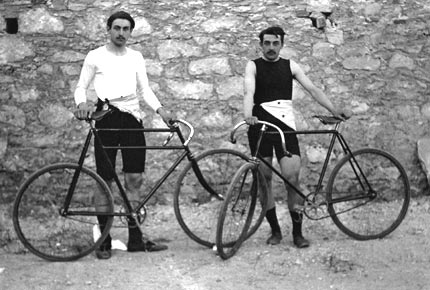
On the morning of Sunday April 12, (April 3, according to the Julian calendar), King George organized a banquet for officials and athletes to close the Olympics, although some competitions had not yet been held. After the banquet, the king rewarded prizes to the winners and unlike today, the first-place winners received silver medals, an olive branch, and a diploma. Runners-up were given copper medals, a branch of laurel, and a diploma as well. No medals were rewarded for the third place winners.
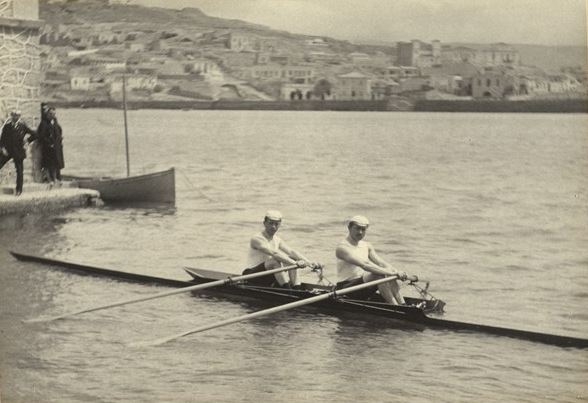
After the rewarding ceremony was completed, Spyridon Lous led all medalists on a lap of honor around the stadium while the Olympic Hymn was performed again. The King then formally announced that the first Olympiad had ended. Since then, the IOC has changed the silver and copper medals for gold and silver ones.
The 1896 games represented a great success. It was the largest international participation of any sport to that date. The event also gathered the largest crowd that had ever followed a sporting event. King George had insisted that all the following Games take place in Athens, but the 1900 Summer Olympics were already planned for Paris. His initiative was backed by a petition submitted to Coubertin and the IOC.
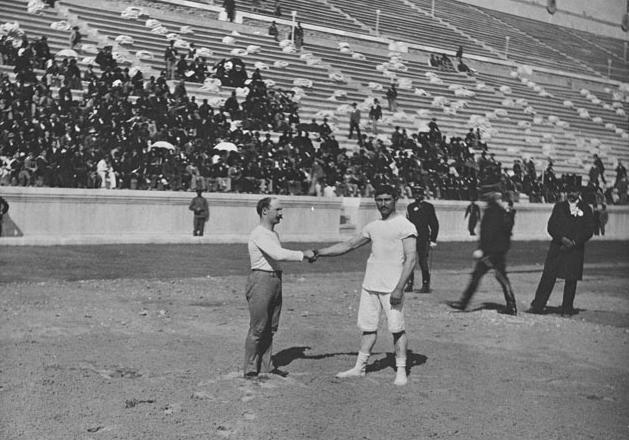
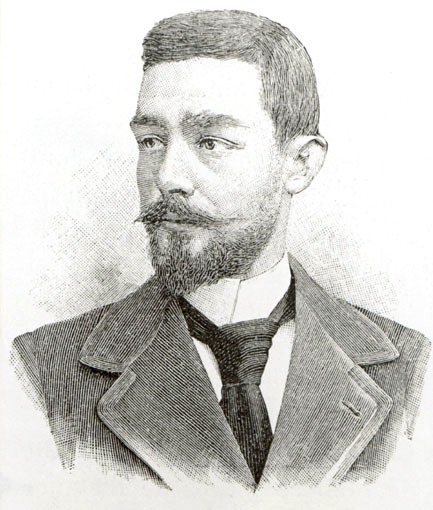
Except for the 1906 Intercalated Games in Athens, which were referred as the “Second International Olympic Games in Athens” by the IOC at the time, the Olympics returned to the Greek capital only in 2004.
The medals of the 1906 games are not recognized by the IOC today. Four of the original nine venues that were used for the 1896 games were also used for the 2004 Summer Olympics, the year when the Games returned to Greece after 108 years.
